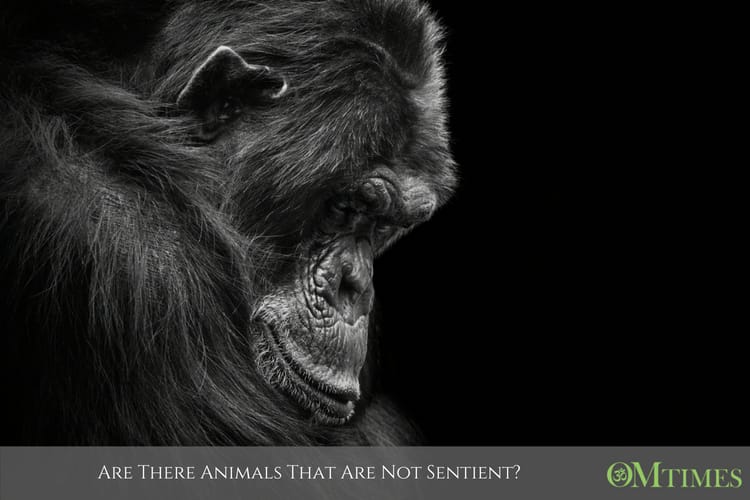Are There Animals That Are Not Sentient?

Sentient animals. Do you know what that means?
Are Animals Sentient?
The human being, in general, tends to disqualify what he does not know because there is a mental weariness in seeking to understand that which is new and, in many ways, different from us. In the same way, many people resist when others raise the flag for the struggle for recognition of animals as sentient beings because this status implies recognizing that these beings have fundamental and essential rights, such as life, freedom, dignity.
We say that a being is sentient when we recognize and accept that he is able to feel, to experience feelings as pain, anguish, loneliness, love, joy, anger and fear.
To really grasp the meaning of sentience in animals, we need to define the term. The word Sentient derives from the term SENTIRE from Latin and means to FEEL. According to Singer’s definition (2002), sentience is the capability to suffer, to feel pleasure or happiness. It is the competence to receive and react to a stimulus consciously. Being aware is synonymous with having experiences, which can be positive or negative for individuals.
Animals are not brethren, they are not underlings; they are other nations, caught with ourselves in the net of life and time. ~Henry Beston
To recognize that animals are able to experience feelings like pain, anguish, loneliness, love, joy, and anger and that those aren’t just privilege of the human being, but of all animals is a step towards a more conscious and enlightened society.
Beings that do not have a central nervous system are not sentient. This includes bacteria, archaea, protists, fungi, plants and some animals. There is a possibility that some animals with a simplified central nervous system are not sentient either, but this is an open question and still cannot be resolved by modern science.
The possession of a central nervous system is what allows animals to have feelings and experiences, only animals have such systems. No other living being has a nervous system, among all organisms present in our biosphere, no being such as plants, fungi, protists, bacteria, and archaea has such a structure. None of them has a mechanism for transmitting information similar to what is present in animals with central nervous systems.
Evolutionary logic and non-animal living things
It may be that beings other than animals possess different physical structures that fulfill the same function as a central nervous system, this is to be decided by scientific research. In this way, we assume that this type of organized system would be equally complicated to present the same result as a sentient organism. This is, entirely possible. The ways an organism without a non-centralized nervous system can respond to stimuli can vary greatly. Yet, however, complex they may be, with a non-centralized nervous system or a physical structure that can perform a similar function, the response cannot be explained as consciousness, not at least the way we know it.
The structures that allow the development of consciousness appear very early in the development of animals, but never appear in living creatures that are not animals. Living beings that are not animals have a simple structure. They do not have a nervous structure or any physical structure complex enough for the possession of consciousness. Moreover, the possession of such a “construct” would not make evolutionary sense.
This could happen if, in fact, the consciousness needs some degree of nervous complexity, which may very well be the case. However, since the relevant scientific knowledge is lacking so far, the question remains open. What we know from our present understanding is that all sentient beings are animals, but that not all animals are conscious.
Plants have no experience: the response to external stimuli is not sentience
An idea that has no scientific support but has received some support is the opinion that plants have experienced because they respond to certain stimuli. However, displaying such a physical response does not require the ability to have subjective experiences. For example, plants are not able to escape a threat or to seek a type of food they like. These stimuli would be of no use and would imply an unnecessary expenditure of energy.
We should explain it by assuming some alternative physical mechanism. Although nonconscious physical responses fail to reach a level of complexity comparable to that of creatures whose consciousness allows them a wide variety of behaviors, nonconscious responses may have a relatively high level of complexity.
Non-sentient animals
The fact that only animals are sentient does not mean that all animals are sentient. As explained in the section on the criteria for sentience, to have experiences it is necessary to have a central nervous system. And some animals do not have this system. This implies that there are animals that may not be sentient. In the first place, we would include here those beings who do not have a nervous system, like the poriferous and those that have a nervous system that is not centralized, like echinoderms and cnidarians. Non-sentient animals would then include sponges, corals, anemones, and hydras.
Again, as in the case of plants, these animals may react to external stimuli, and even engage in locomotion. For example, sponges, although they do not have a nervous system, have a physical mechanism that allows them to perform precise movements (by circulating water through the cells of which they are composed). Echinoderms (such as starfish, sea urchins, and sea cucumbers) may have a relatively complex behavior (such as for example a carnivorous plant).
But as the same in the case of plants, there is nothing in their physiology that would allow possession of sentience.
Obviously many questions remain to be asked, questions that would clarify to us the possibilities that consciousness can present itself and infuse all beings in creation in different degrees, and because of that, many may not need the presence of complex nervous structures and constructs to be manifested as sentience.
We call them dumb animals, and so they are, for they cannot tell us how they feel, but they do not suffer less because they have no words. ~Anna Sewell
You will also enjoy Steven Wise: The Nonhuman Rights Project
About the Author
Cathedral of the Soul intends to undertake the challenge of creating a multidimensional healing space that is dedicated to those who seek to enrich, enlighten and heal themselves while serving and assisting in the healing of others. Cathedral of the Soul is one of the many spiritual outreaches of Humanity Healing International, a registered 501C3 nonprofit with Church status. https://cathedralofthesoul.org
Cathedral of the Soul intends to undertake the challenge of creating a multidimensional healing space that is dedicated those who seek to enrich, enlighten and heal themselves while serving and assisting in the healing of others. Cathedral of the Soul is one of the many spiritual outreaches of Humanity Healing International, a registered 501-C3 nonprofit with Church status.










